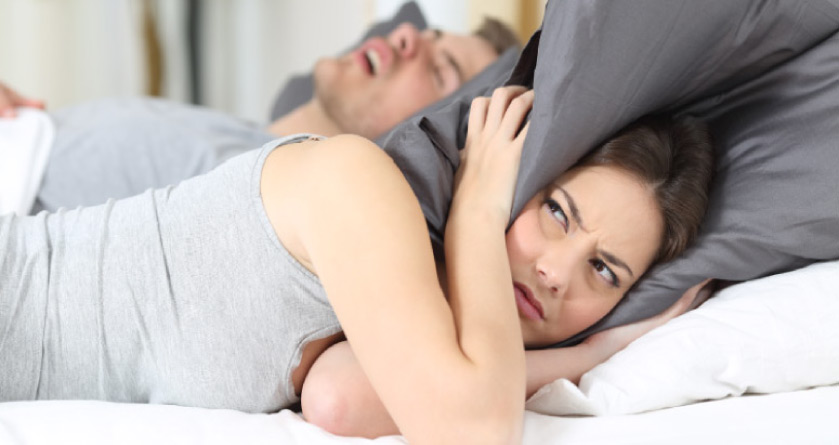
Do you have issues sleeping? If so, you may be one of the many American adults who suffer from sleep apnea. While it causes problems with sleeping, sleep apnea is also associated with issues that may be related to your oral health.
What Is Sleep Apnea?
Let’s begin by explaining what sleep apnea is. Sleep apnea is a sleep disorder that causes breathing to be repeatedly interrupted during a night of sleep. These breathing interruptions can number in the hundreds every night. Every time this happens, oxygen is cut off from reaching the brain. The pause in breathing occurs when the soft tissue in your airway collapse and oxygen is blocked from your lungs. There are a number of reasons why your airway could cause obstructed breathing including being obese, having a large tongue, having weak muscles in your airway, or having astroesophageal reflux. Some remember waking up many times throughout the night but the pauses in breath can be so small that they might not even wake you up.
What Are the Symptoms of Sleep Apnea?
There are two kinds of symptoms of sleep apnea: those that occur during the night when you’re asleep and those that happen during the day. Night symptoms include snoring, frequent trips to the bathroom, pauses in breathing that someone sleeping near you might notice, waking up gasping for air, and an overall restless night. The daytime symptoms include headaches, a lack of energy throughout the day, difficulty concentrating, weight gain, dry or sore throat, and being irritable and forgetful. Take our Sleep Quiz to see if your symptoms could be Sleep apnea related!
How Is Sleep Apnea Related to Oral Health?
There are a number of ways that sleep apnea is connected to oral health. People who suffer from sleep apnea also usually grind their teeth, leading to worn tooth surfaces, jaw pain, and inflamed and receding gums. When you grind your teeth, you’re also wearing away at your tooth enamel which means that your teeth will be more susceptible to tooth decay. Sleep apnea is also associated with dry mouth because an open mouth means a decrease in saliva production. Without saliva, the mouth becomes dry which also causes bacteria infections, bad breath, and more. If the sockets of your teeth become too dried out, you can actually lose a tooth.
What Is the Treatment for Sleep Apnea?
The first treatment for sleep apnea is a CPAP, Continuous Positive Airway Pressure, machine. This provides a stream of air through a tube that connects to a mask worn over the nose or face. The pressure of the air keeps the airway open so you can breath during sleep. There are also custom sleep apnea mouth appliances that open up your airway during sleep. These are more comfortable than CPAP masks and have proven to be a very effective solution for many patients.
We Care About Your Oral Health
Please contact our office to set up an appointment if you think you may have sleep apnea or if you have any questions about your oral health. We look forward to hearing from you!
